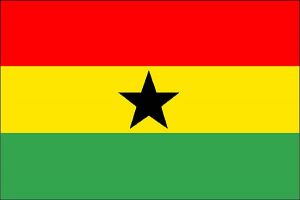Language/Ga/Grammar/Gender
Hi Ga learners! 😊
In this lesson, we will learn about gender in the Ga language. Gender is an important aspect of language, as it can affect the way we communicate and interact with others. Understanding gender can help us to better understand the cultural context in which the language is spoken. In this lesson, we will explore the different gender categories in the Ga language, including masculine, feminine, and neuter. We will also look at how gender is expressed in Ga grammar, including the use of gender markers and agreement.
Consider broadening your understanding by checking out these related lessons: Pronouns & How to Use Be.
Gender Categories in Ga[edit | edit source]
Like many other languages, Ga has a system of gender categories. In Ga, there are three main gender categories: masculine, feminine, and neuter. These categories are based primarily on biological sex, as well as on social and cultural factors. For example:
| Ga | Pronunciation | English |
|---|---|---|
| nɔmi | noh-mee | son (masculine) |
| tsua | tsoo-ah | daughter (feminine) |
| hewɔ | heh-woh | child (neuter) |
| akɛtɛ | ah-ket-eh | cat (neuter) |
In the examples above, we can see that certain words in Ga are categorized as masculine, feminine, or neuter. These categories are often arbitrary and do not necessarily correspond to the biological sex of the object or person being referred to.
Gender Markers[edit | edit source]
In Ga, gender is often expressed through the use of gender markers. These are affixes or suffixes that are added to words to indicate their gender category. For example:
| Ga | Pronunciation | English |
|---|---|---|
| ŋma | ng-mah | mother (feminine marker -a) |
| na | nah | father (masculine marker -a) |
| hewɔ | heh-woh | child (neuter) |
In the examples above, we can see that the feminine marker -a is added to the word for mother (ŋma), while the masculine marker -a is added to the word for father (na). The word for child (hewɔ) does not have a gender marker, as it is a neuter noun.
Gender Agreement[edit | edit source]
Gender is also expressed in Ga through agreement. This means that the gender of one word will affect the form of other words in the sentence. For example:
| Ga | Pronunciation | English |
|---|---|---|
| ŋma wɔ agban | ng-mah woh ah-gbahn | The mother ate the yam (feminine agreement) |
| na wɔ agban | nah woh ah-gbahn | The father ate the yam (masculine agreement) |
| hewɔ wɔ agban | heh-woh woh ah-gbahn | The child ate the yam (neuter agreement) |
In the examples above, we can see that the verb (agban - ate) agrees with the gender of the subject. The feminine subject (ŋma - mother) takes the feminine agreement marker -wɔ, while the masculine subject (na - father) takes the masculine agreement marker -wɔ. The neuter subject (hewɔ - child) takes the neuter agreement marker -wɔ.
Cultural Significance[edit | edit source]
Gender is an important aspect of the Ga language and culture. In Ga society, gender roles and expectations are often tied to traditional values and beliefs. For example, women are expected to be caretakers and homemakers, while men are expected to be providers and protectors. These gender roles are reflected in the way that language is used and expressed. Understanding gender in Ga can give us insight into the cultural context and values that shape the language and the people who speak it.
Dialogue[edit | edit source]
To see gender in context, let's imagine a conversation between two friends:
- Person 1: Eyi kɔkɔɔ tsua mli? (Did you see the girl?)
- Person 2: Aane, mɔ hewɔ mli. (No, I saw a child instead.)
In the example above, we can see gender being used to differentiate between a girl (tsua) and a child (hewɔ).
Conclusion[edit | edit source]
In this lesson, we have learned about gender in the Ga language. We have explored the different gender categories in Ga, including masculine, feminine, and neuter. We have seen how gender is expressed through the use of gender markers and agreement, and we have looked at the cultural significance of gender in Ga society. By understanding gender in the Ga language, we can gain a deeper understanding of the cultural context in which the language is spoken.
➡ If you have any questions, please ask them in the comments section below. ➡ Feel free to edit this wiki page if you think it can be improved. 😎
Sources[edit | edit source]
With this lesson finished, you may want to explore these additional pages: Conditional Mood & Questions.

